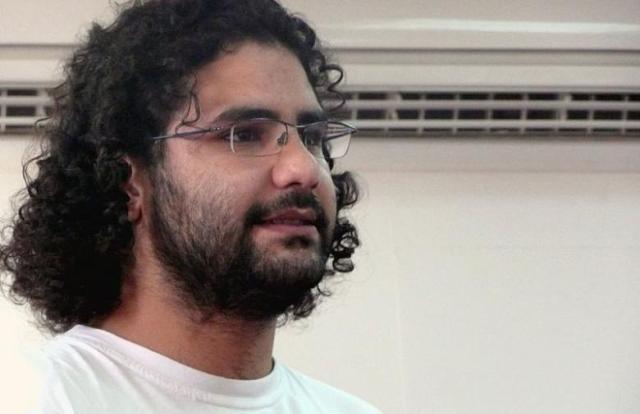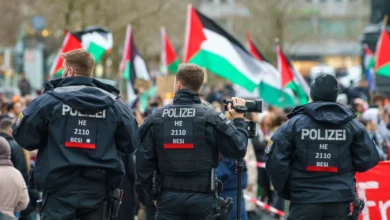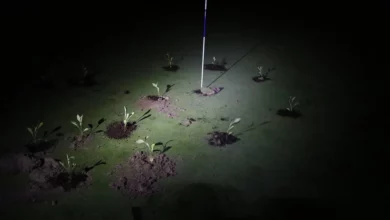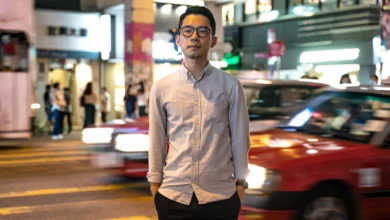
The North Cairo Court of Appeals on Monday refused to release blogger and activist Alaa Abd El Fattah, who has been detained pending investigation since 30 October regarding his involvement in clashes, between protesters — most of whom were Copts — and the military, on 9 October. During the clashes, 28 people were killed.
Abd El Fattah is charged with assaulting military personnel, stealing automatic weapons that belong to the armed forces, and inciting violence against the military. His detention is up for renewal on 13 December.
“I’m fine and the prison is okay,” Abd El Fattah, wearing a white prisoner's uniform, told a group of visitors as he awaited the verdict.
Abd El Fattah appeared in good condition, smiling and joking with his wife, Manal Bahey al-Din Hassan, who is pregnant with the couple's first child. The baby is expected to be born in a matter of days.
Khaled Ali, one of Abd El Fattah’s lawyers, told Al-Masry Al-Youm that the defense team has submitted evidence proving that Abd El Fattah arrived at the scene of the violence after the clashes ended. This contradicts witness testimony that places the activist at the scene during the clashes.
Ali added that lawyers had obtained documents from Abd El Fattah’s cell phone company tracing his movements on 9 October. His Twitter updates also prove that he was at his house when clashes began, Ali said.
One witness, Abdel Aziz Fahmy, testified that he saw Abd El Fattah along with Wael Abbas, another blogger and activist, during the clashes. However, Abbas was out of the country on that day. Abd El Fattah’s lawyers provided the court with Abbas's passport and plane tickets.
Safaa Zaki, another lawyer from the defense team, said that they had requested Abd El Fattah’s release, stating that he is not at risk of fleeing authorities. Abd El Fattah had returned from a visit to the United States in order to attend his initial interrogation, Zaki said.
Zaki suggested that the case may be politically motivated. “If the judge were not being pressured into taking a certain decision, he would order his [Abd El Fattah] release,” Zaki told Al-Masry Al-Youm.
The defense team also presented the fact-finding report by the National Council for Human Rights (NCHR) about the clashes, which states that military forces initiated the attacks and that protesters were acting in self-defense.
“I wonder how come Abd El Fattah is accused of such serious charges and was never issued an arrest warrant or an order to search his property for automatic weapons,” Ali said. Abd El Fattah was summoned for questioning before being remanded into custody.
“This means that they don't take these charges seriously because they know they are not true,” Ali said.
The prominent activist was summoned by the military prosecution but refused to answer any questions from the military prosecutor because he believes the military is implicated in criminal actions related to the incident.
Following an international campaign against military trials for civilians, Field Marshal Mohamed Hussein Tantawi, Egypt's de facto interim leader, ordered the case transferred from a military prosecutor to the State Security Court.
Activists have staged demonstrations in many countries to protest his detention and the prosecution of civilians before military trials.




